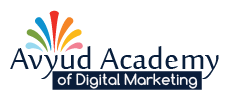On-page SEO is the practice of optimizing individual web pages in order to rank higher and earn more relevant traffic in search engines. On-page refers to both the content and HTML source code of a page that can be optimized, as opposed to off-page SEO which refers to links and other external signals
On-page SEO is the process of optimizing each and every web page of your site in order to rank higher in the Search Engine Results Pages (SERPS). On-Page SEO has to do with both technical SEO (titles, descriptions, URL etc) and the content of your web pages.
Your ultimate goal with on-page SEO is to speak the ‘search engines language’ and help crawlers understand the meaning and context of your pages.
IMPORTANCE OF ON-PAGE OPTIMIZATION AND HOW TO DO ITS RIGHT!
Top 6 On-Page SEO Factors:
-
Use high-quality, original content
-
Insert your keyword into the first 50 words
-
Have a keyword density of at least 1%
-
Word your title tags carefully
-
Include your keywords in your internal links
-
Use H1 tags and use them well
In today’s post we will be looking specifically at On-Page SEO and some of the most effective ways to increase your page rankings on search engines.
On-Page Search Engine Optimisation
-
Page Titles
-
Meta Descriptions
-
Meta Tags
-
URL Structure
-
Body Tags (H1, H2, H3, H4, etc.)
-
Keyword Density
-
Image SEO
-
Internal Linking
ON-PAGE SEO BENEFITS
-
Local Results
-
Inexpensive & Powerful Marketing
-
Permanent Value
-
Timesaving
-
Good UX –> Better Conversion Rate
-
Improve CTR
-
More Organic Traffic Sources
-
Leverage Long Tail Keywords
-
Page Speed
-
Uniqueness
To Conclude
With your SEO strategy, always look up to On-Page SEO for sheer effectiveness. Another dash of advice would be to have all On-Page factors 100% optimized before you step onto the Off-Page field of play. This would give you an upper-hand when you lock horns with your competitors.
And do not underestimate On-Page factors, a foretime fad that propels the present for a towering tomorrow.
Source: quora





